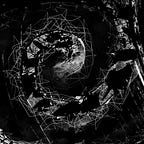Project 2 Discussion
1. In the podcast, Theodore Kerr says that “I am not just my body. I am my body and my friends. I am my body and my networks. I’m my body and my memories.” This statement reminds me a lot of some of the philosophy put forth by the show Neon Genesis Evangelion, strangely enough. In this show, the main characters, who are originally shown to follow traditional tropes such as the nerdy wimp, or the hot-headed red head, are then later explored in detail. We see how each one struggles against the stereotypes that they are being pushed into and how their perception of self is affected by those around them. Essentially, both the story of this show and Kerr’s statement explore the idea that sentient beings are a complex amalgamation of how others perceive us and how we perceive ourselves. At the end of the show, when the main character realizes that the many versions of him, both the bad that he sees and the good that others see, exist all at once and combine to make his true self, he learns to love himself. Do you think that this philosophy towards embodiment is realistic? While it works to help Shinji (the main character), and Theodore Kerr, are there reasons in which you think this could be faulty? Or do you agree with this philosophy? If so, why?
2. In the text, Micha writes about her experience learning about the Pulse Night Club tragedy and her project Unstoppable. She says that the aforementioned event lead her to further her project and continue to search for options to protect other trans women and marginalized communities. Do you think that this project is Micha’s way of embodying the experiences of her community? Could the reverse also be said in that the support Micha receives for her work is an embodiment of the struggles of the community being routed towards action? Bringing this towards a broader topic in what other ways could embodiment/disembodiment go both ways?
3. The statement briefly mentions that Transhumanists support the well-being of all sentient life including non-human or artificial intelligence. Do you think that the lack of a physical body or form detracts from the rights or sentience of artificial sentient beings? While this answer may seem to be an obvious no from most I think it can still be helpful to talk about to explore how the possession of lack of a body can effect one’s being and perception. If you do answer yes to the idea that a lack of form can detract from one’s rights or sentience would this still apply to a human without a physical form? How is this any different than artificial intelligence?
